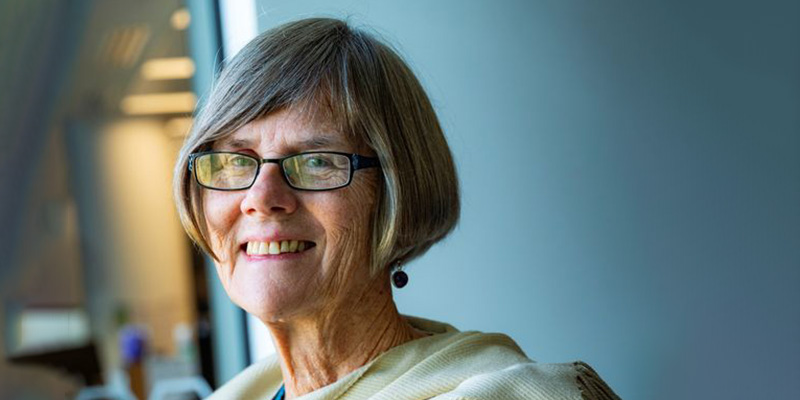 A huge congratulations to The Kids Research Institute Australia founding researcher, Emeritus Professor Carol Bower, who has been recognised in the King’s Birthday Honours for her profound impact on child and public health over a 40-year career.
A huge congratulations to The Kids Research Institute Australia founding researcher, Emeritus Professor Carol Bower, who has been recognised in the King’s Birthday Honours for her profound impact on child and public health over a 40-year career.
Professor Bower, whose landmark research and advocacy around the link between low folate levels and birth defects led in 2009 to the mandatory fortification of flour, was named a Companion of the Order of Australia – the nation’s highest honour.
The Companion of the Order of Australia is awarded for eminent achievement and merit of the highest degree in service to Australia or humanity at large.
The Kids Research Institute Australia Executive Director, Professor Jonathan Carapetis AM, said Professor Bower had transformed the lives of thousands of Australian children and families through her tireless commitment to health research and advocacy – particularly in the areas of birth defects and Fetal Alcohol Spectrum Disorder (FASD).
“Carol’s seminal work with Professor Fiona Stanley in confirming the link between low dietary folate and birth defects is one of the great public health stories of our time,” Professor Carapetis said.
“In an approach that came to be characteristic of her career, Carol followed her rigorous scientific work with decades of patient but persistent advocacy that ultimately led to folate fortification of bread flour in Australia.
“This in turn led to dramatic reductions in the rates of neural tube defects like spina bifida in babies – most notably in Aboriginal communities, where rates of such birth defects plummeted by 68 per cent following fortification.
“So important was this work that in 2018, the Public Health Association of Australia rated mandatory folate fortification as one of the top 10 public health achievements of the past 20 years.”
Professor Carapetis said this commitment to ensuring her research had meaningful outcomes had played out across multiple landmark projects undertaken by Professor Bower and her team over the years, including their work on FASD.
“Carol has been relentless in her commitment to researching and addressing the harm caused by alcohol in pregnancy, including successfully lobbying with others for the need for mandatory pregnancy warning labels on alcohol packaging,” he said.
“Her leadership and advocacy in this area have profoundly impacted Australia’s ability to grasp and address the nature, causes and impacts of FASD.
“This includes her leadership of the ground-breaking Banksia Hill Project, which in 2018 revealed unprecedented levels of FASD and other severe neurodevelopmental impairments in young people detained at Banksia Hill.
“Carol and her team produced vital evidence, recommendations and intervention models that continue to resonate today, as we as a State wrestle with the way such young people should be supported and managed.”
Among a string of other achievements, Professor Bower established Australia’s first birth defects registry, since replicated in other states, which has provided critical data for countless research projects; and helped to pioneer the practice of community engagement and involvement in research.
“Carol was one of the first researchers Australia-wide to make community engagement a required and standard part of medical research – something we now embrace as second nature in everything we do at The Kids,” Professor Carapetis said.
Professor Bower said she had thought long and hard about whether to accept the honour of being named a Companion of the Order of Australia.
“My first response was that I was just doing my job,” she said. “However, I realised that in recognising me, this honour is actually recognising the many wonderful people with whom I have had the enormous privilege of working.
“This award is truly for them – especially for colleagues at the WA Register of Developmental Anomalies, The Kids Research Institute Australia, and The University of Western Australia, and the consumers and community members who have contributed to our research.”
Professor Bower, who retired in 2021, said the most satisfying aspect of her career had been demonstrating the importance of epidemiology and public health, and the value of using evidence to guide policy, practice and evaluation.
“The important thing to remember is that research of this kind takes time – and change can be slow. Patience and persistence are key.”
